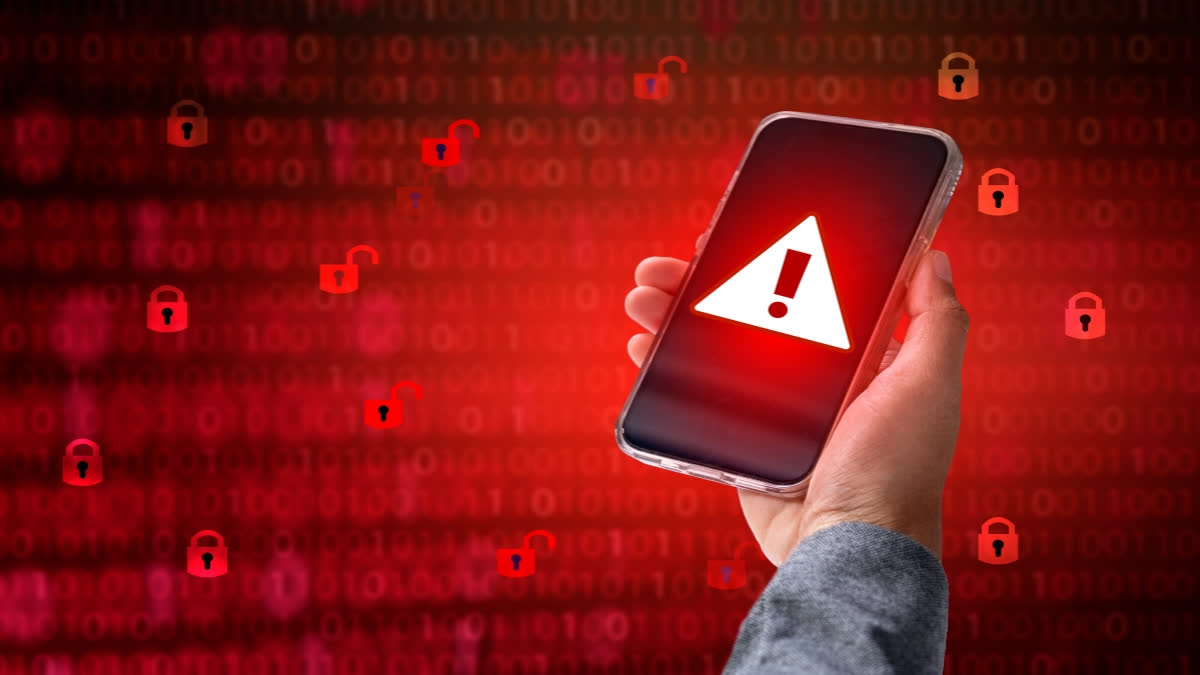Apple 'hacking' alerts: Why most politicians in India use iPhones Hyderabad:Earlier this week, several Indian politicians, who sit in the opposition against the BJP-led central government, received an alert notification from Apple warning them of a “state-sponsored attack”.
Sharing screenshots of the notification on their iPhones, the leaders alleged hacking by the government, a charge IT Minister Ashwini Vaishnaw rejected but assured a probe.
The leaders whom Apple warned included Congress Chief Mallikarjun Kharge, his party colleague and MP Shashi Tharoor, TMC's Mahua Moitra, AIMIM chief Asadudin Owaisi, AAP's Raghav Chadha, Samajwadi Party president Akhilesh Yadav, CPI (M) General Secretary Sitaram Yechury, and Shiv Sena UBT MP Priyanka Chaturvedi among others.
A few journalists known to question the government also claimed to have received the notification on their iPhones. “ALERT: State-sponsored attackers may be targeting your iPhone. Apple believes you are being targeted by state-sponsored attackers who are trying to remotely compromise the iPhone associated with your Apple ID,” the threat notification read.
Why is this story important?
Apple joined the Indian Computer Emergency Response Team or CERT-In in the probe on November 2 into the allegations made by the politicians. CERT-In is the national nodal agency for responding to computer security incidents.
The government, interestingly, says the probe is focused on “determining if the Apple products are secure and safe and can be trusted to protect the privacy of the consumers”, according to a report in the Indian Express.
Apple began the practice of sending threat notifications to its iPhone users in 2019. The decision followed the widespread disclosure of Pegasus, a spyware program developed by the Israeli cyber intelligence agency NSO.
Pegasus was used by governments around the world to infiltrate the mobile devices of opponents and rivals. Last year, The New York Times reported that India had been declared a member of the NSO. Notably, Pegasus played a key role in 2017 as part of the $2 billion defense package India got from Israel.
iPhone, the preferred choice of politicians. But why?
Coupled with high-speed internet, smartphones have become an extension of people’s arms across the globe. The collaborative power of smartphones has breached boundaries across platforms in a way never seen before in history.
From ordering food and opening bank accounts to conversing with millions and setting up an agenda, smartphones have fused into our lives taking and simplifying tasks that were once tedious. But at the same time, the ease of sharing information has made it vulnerable to hackers. Digital privacy has become a luxury so much so that one has to make the tough decision almost on a daily basis of what to choose: security or engagement.
This is where the iPhone comes in. A smartphone that promises the best security features to its users. Compared to Android smartphones which offer features and versatility, the iPhone is primarily designed to protect a user’s data and privacy.
The iPhone's privacy overview works to limit access to your personal information to anyone but you. Additionally, you have the flexibility to exchange shared data and manage shared environments. Built-in security settings serve as safeguards against unauthorized access to data stored on your iPhone and your iCloud account, ensuring that only you can access this information.
According to Michael Goad, a US-based mobility SME who has hands-on experience in mobile technologies, Apple builds iPhones from the ground up with privacy and security in mind.
“It has a built-in encryption system through Secure Enclave. This hardware-based security chip protects sensitive user data, even if the device's main processor is compromised. Apple also tightly controls its App Store, limiting the availability of malicious apps that could compromise user data,” Goad writes in one of his recent articles for TechTarget.
Compared to iOS, the Android operating system is accessible on a diverse array of devices, and Google exerts less influence over the oversight and dissemination of security updates and patches within its open-source ecosystem, he adds.
This has sparked apprehensions among IT administrators, particularly when they aim to centralize management through Mobile Device Management (MDM), a task that frequently necessitates supplementary licensing or the utilization of third-party tools, the tech expert writes.
As such, it is not surprising why politicians, who rely a lot on social media and messaging apps to connect to their inner and outer circles of engagement, choose iPhones. The bare fact that the bunch of Indian politicians opposing the government got the alert from Apple in a country where millions use these phones is in itself a reason why they use this device.
Read More:
- Apple alert: Mahua Moitra to write to LS speaker to protect opposition MPs
- 'Have asked Apple to join investigation...': IT Minister Ashwini Vaishnaw on politicians' alleging 'state sponsored' hacking attempt
- Apple alert on 'state-sponsored attacks' on politicians' phones: Who all got the message
- Apple on Opposition MPs' claims: Can't attribute threat notifications to any specific state-sponsored attacker
